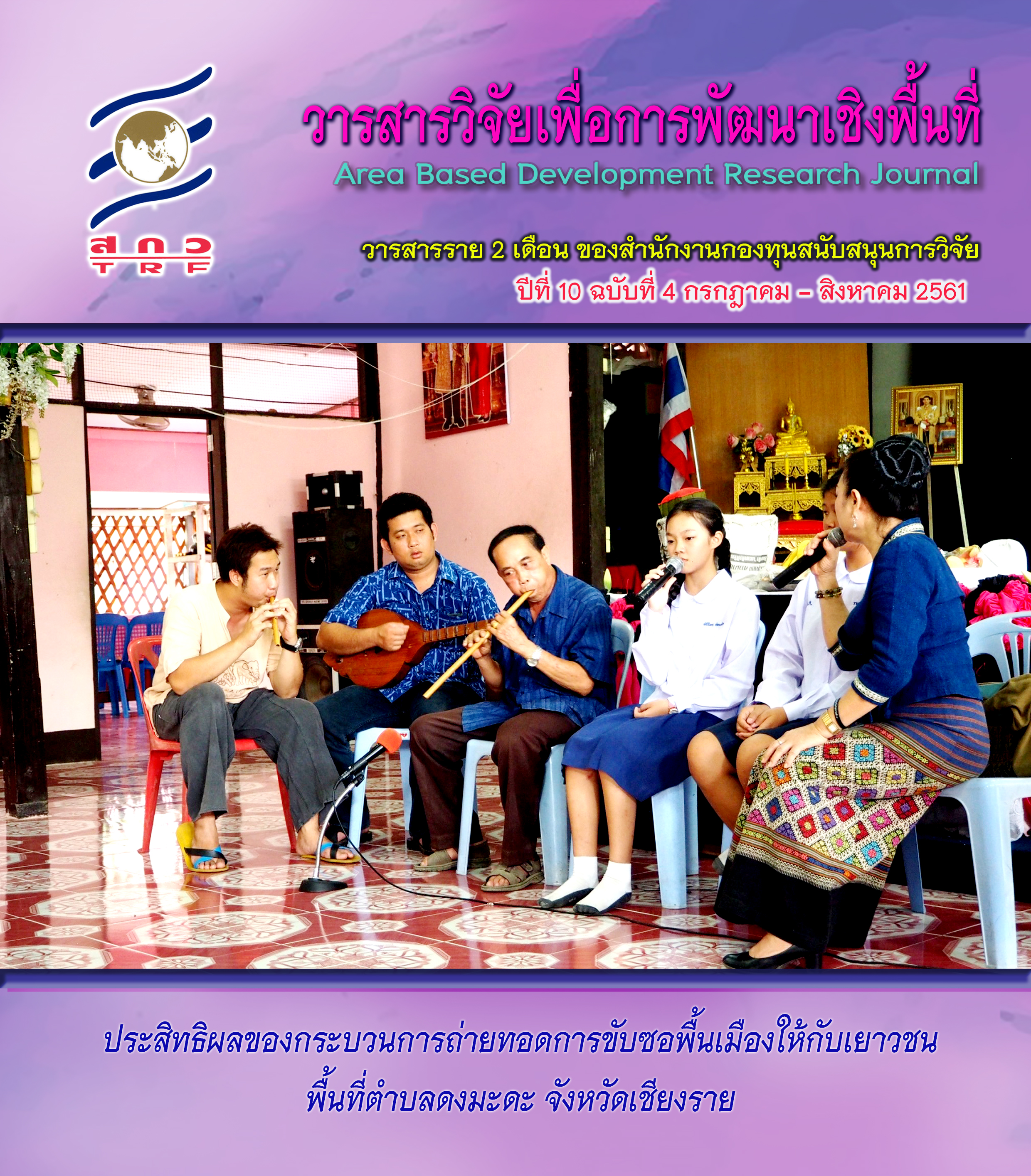การส่งเสริมสุขภาวะผู้สูงอายุในโรงเรียนผู้สูงอายุชุมชนดงมะดะ จังหวัดเชียงราย
Main Article Content
Abstract
This study aims to promote the overall health of Elderly in Senior School Dongmada Sub-district. Key informant was 30 elderly citizens who are members of different elderly clubs in Dongmada sub-district (60 years old). Methodology were observation process, In-depth interview and the community stage for focus groups, analyze data with the elderly on the potential development approach leadership health and to promote the well-being of the elderly. The development of the potential of the elderly focuses on the development of knowledge from the local wisdom and cooperation in the network. Overall, building a network of social and cultural knowledge and other support agencies as Dongmada District Municipality Educational institution Public Health Department. Leadership in community health development focuses on being a leader in the community that represents the well-being for immunity to change. The elderly accept old experts in the city (Traditional Healers) and community leaders such as Por Luang (headman). Promoting health and Well-being in the elderly are important a holistic health approach, whereof family and community. The advantage Dongmada's are the relationship of the elderly, cooperation and promoting the network. As well activities in the Senior School support the healthy development of Elderly. Well-being through self-reliance, resilience, and immunity and improve the quality of their physical and mental health. For example, there are excellent caregivers for the elderly, studying herb, folk medicine, recreation and disseminate knowledge.
Article Details
Area Based Development Research Journal values copyright protection and licensing to safeguard author rights and facilitate the appropriate dissemination of research. Our policies ensure openness, accessibility, and attribution. Authors retain copyright ownership, and articles are published under a Creative Commons Attribution License (CC BY), allowing sharing, adaptation, and proper attribution. Authors have the freedom to publish under the CC BY license, granting broad reuse and distribution permissions. The journal supports posting articles on third-party repositories, adhering to institutional and funding restrictions. Author guidelines detail copyright and licensing requirements, empowering authors with knowledge about their rights and responsibilities. These policies cultivate an environment of collaboration, openness, and responsible sharing, benefiting authors and the research community while honoring intellectual property rights.


